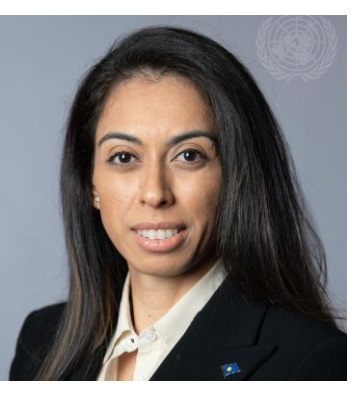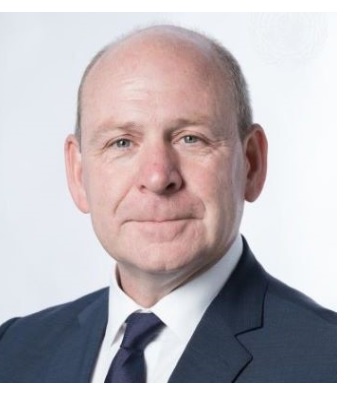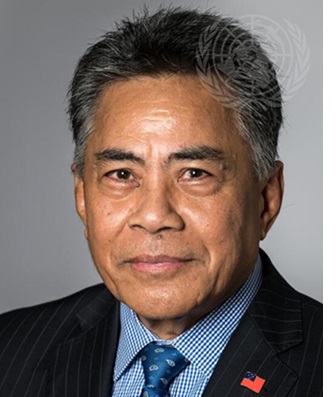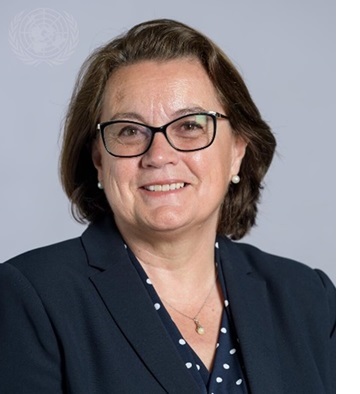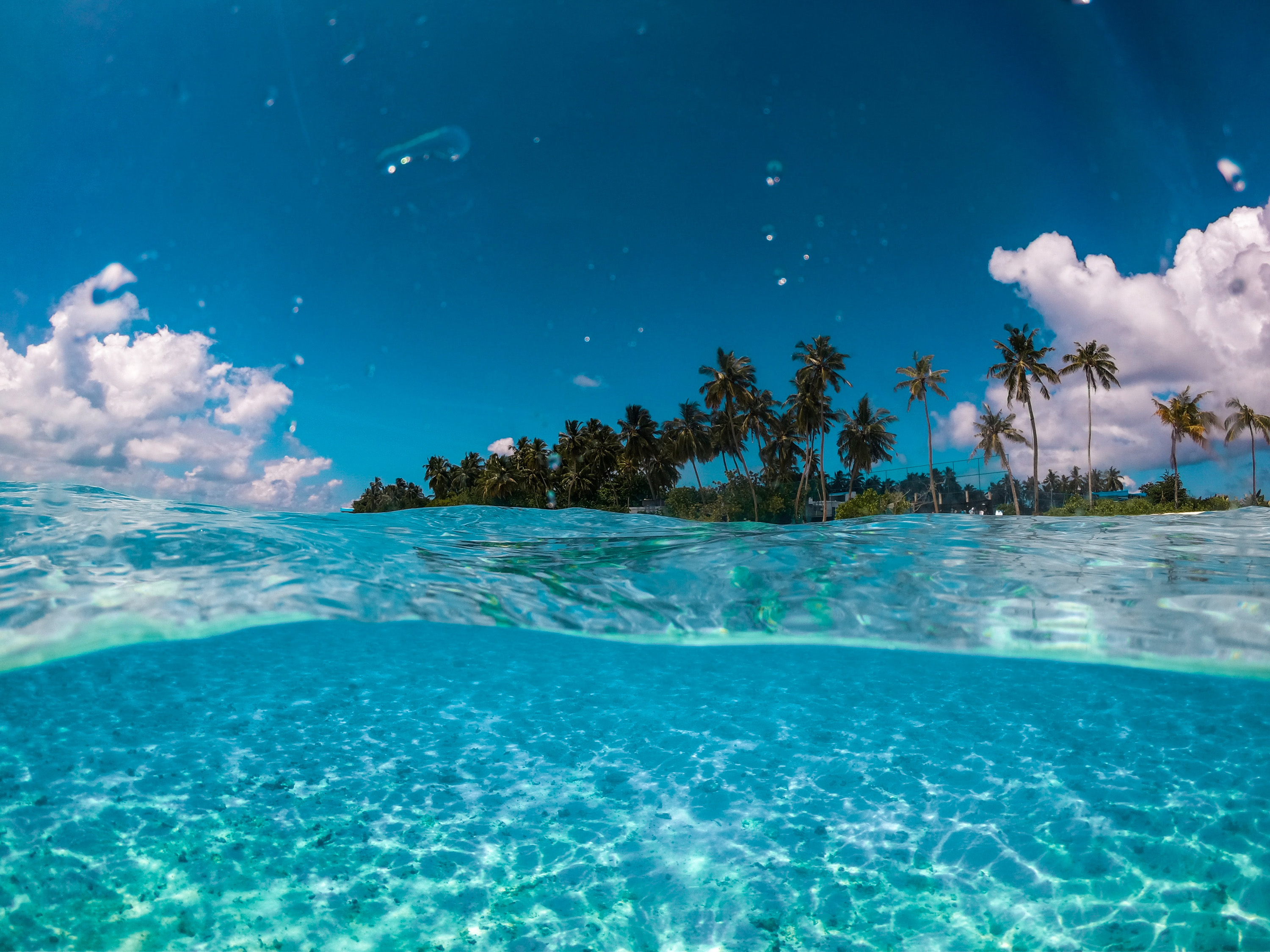Background
Overview
A key request from the outcome of the 2014 Third International Conference on SIDS - the SAMOA Pathway - was the establishment of the Small Island Developing States (SIDS) Partnership Framework, designed to monitor progress of existing, and stimulate the launch of new, genuine and durable partnerships for the sustainable development of SIDS.
Guided by a member States driven Steering Committee, the framework has since its launch ensured that partnerships for SIDS have remained high on the UN’s agenda, providing a multi-stakeholder platform for reviewing progress made by partnerships for SIDS, and for sharing of good practices and lessons learned among all stakeholders, on an annual basis.
For the year 2025, the Steering Committee is co-chaired by H.E. Dr. Ali Naseer Mohamed, Permanent Representative of Maldives to the United Nations, and H.E. Ms. Sanita Pavļuta-Deslandes, Permanent Representative of Latvia to the United Nations. Committee is open to all States Members of the United Nations or members of the specialized agencies, and is supporting the follow-up of existing, and promotes and advocates the launching of new, partnerships that advance the sustainable development in SIDS.
Strengthening of the SIDS Partnership Framework
The outcome document of the fourth International Conference on Small Island Developing States (SIDS4) - The Antigua and Barbuda Agenda for SIDS (ABAS) – includes a request to the UN Secretary-General, in consultation with States and the Steering Committee on SIDS Partnerships, to present recommendations for the strengthening the SIDS Partnership Framework. In response, UN DESA, in consultation and collaboration with the Steering Committee on Partnership for SIDS co-chaired by the Maldives and Latvia, undertook a comprehensive consultation process to collect inputs and ideas from Member States, UN system and civil society on the strengthening of the SIDS Partnership Framework. The summary of the recommendations was presented at the Ambassadorial meeting of the Steering Committee on Partnerships for Small Island Developing States (SIDS) 2025 held on 30 May 2025.
Presentation materials:
- Recommendations for Strengthening the SIDS Partnership Framework & the SIDS Global Business Network and Forum
- Summary on the SIDS Partnership Framework by UNDESA
Background
The Third International Conference on Small Island Developing States was held from 1 to 4 September 2014 in Apia, Samoa under the overarching theme of "The sustainable development of small island developing States through genuine and durable partnerships". The Conference resulted in an intergovernmental agreed outcome document – the SAMOA Pathway - and the announcement of 300 multi-stakeholder partnerships devoted to the sustainable development of SIDS.
At the Conference, member States emphasized that international cooperation and partnerships of various kinds and across a wide variety of stakeholders are critical for the implementation of the sustainable development of SIDS. This notion was enshrined through a formal request by member States, through the SAMOA Pathway, for establishing a SIDS Partnership Framework - designed to monitor progress of existing, and stimulate the launch of new, genuine and durable partnerships for the sustainable development of SIDS.
The Framework, formally established in December 2015 by General Assembly resolution 70/202, consist of 1) a member States driven Steering Committee on SIDS Partnerships, 2) the organization of an annual action-oriented and results-focused Global Multi stakeholder SIDS Partnership Dialogue, 3) a standardized partnership reporting process of all stakeholders, and 3) the organization of regional and 4) national SIDS partnership dialogues with support from the United Nations system and the international community.
The SIDS Partnership Framework has ensured that SIDS issues have remained high on the UN’s agenda, and provided a broad multi-stakeholder platform for reviewing progress of SIDS partnerships, sharing of good practices and lessons learned among all relevant stakeholders, and for launching new initiatives devoted to SIDS.
Co-chairs 2025
The Steering Committee on partnerships for SIDS was established by the United Nations General Assembly in 2015 (A/RES/70/202) to support the follow-up of existing and promote and advocate the launching of new SIDS partnerships. It is open to all States Members of the United Nations or members of the specialized agencies, and is supporting the follow-up of existing, and promotes and advocates the launching of new, partnerships that advance the sustainable development in SIDS. The Steering Committee is chaired by one Member State that is a SIDS and one Member State that is not a SIDS.
The Co-chairs of the Steering Committee on partnerships for SIDS, 2025

H.E. Dr. Ali Naseer Mohamed, Permanent Representative of Maldives to the United Nations
Prior to his appointment, Dr. Mohamed headed President-elect Mohamed Muizzu’s Transition Committee on Foreign Relations until the new President was inaugurated on 17 November 2023, and since the inauguration, he has served as Ambassador at Large of the Ministry of Foreign Affairs. Since January 2024, he has been the lead negotiator in the High-Level Core Group for negotiations between the Maldives and India on key bilateral matters, including strategic, defence and economic issues.
From 2017 to 2019, he was his country’s Permanent Representative to the United Nations in New York. He was also his country’s Ambassador to the United States and Canada.
He joined the Maldives foreign service in 1985 and has held several positions within the Ministry of Foreign Affairs, including Director-General for External Resources; Director-General for Political Affairs; Additional Secretary for Policy Planning; Foreign Secretary of the Maldives; and Secretary, Multilateral.
Dr. Mohamed received his PhD in international relations from the Australian National University, Master of Arts from the Leicester University, United Kingdom, and graduate diploma in business administration from the University of Sydney, Australia.

H.E. Ms. Sanita Pavļuta-Deslandes, Permanent Representative of Latvia to the United Nations
H.E. Ms. Sanita Pavļuta-Deslandes took up the position of Ambassador, Permanent Representative to the United Nations in New York in August 2023. She also has been serving as an accredited Ambassador to the Caribbean Community (CARICOM) from December 2024.
Since the beginning of her diplomatic career in 1995, Ms. Pavļuta-Deslandes has worked in the West European Division of the Ministry of Foreign Affairs, the Task Force for Latvia’s EU Accession Negotiations and as the Director of the EU Coordination Department. In her capacity of Ambassador Extraordinary and Plenipotentiary, she represented Latvia’s interests in the Kingdom of the Netherlands, the French Republic, UNESCO and the Permanent Representation to the EU. As the non-resident Ambassador she was accredited to the Kingdom of Morocco, the Principality of Monaco and was appointed as the Personal Representative of the President of Latvia at the International Organisation of La Francophonie.
Ms. Pavļuta-Deslandes headed the European Affairs Office at the State Chancellery, was the Adviser to the Prime Minister on EU Affairs.
Since 2021 Ms. Pavļuta-Deslandes served as Ambassador-at-Large, Head of Secretariat of Latvia’s Candidacy for the United Nations Security Council.
The Ambassador has been awarded the Order of the Three Stars, the French National Order of Merit and the Certificates of Recognition from the Ministry of Foreign Affairs and the Cabinet.
She has graduated from the Latvian Academy of Culture and the Sciences-Po (Institut d’Etudes Politiques de Paris).
Co-chairs 2024
The Co-chairs of the Steering Committee on partnerships for SIDS, 2024
H.E. Ms. IIana Seid, Permanent Representative of the Republic of Palau to the United Nations
Ambassador IIana Seid has been appointed as the Permanent Representative of the Republic of Palau to the United Nations since September 2021.
Before her appointment, Ms. Seid was the founder and CEO of the online retail company Sunday-Morning.com, which she launched in 2018.
Among other private sector business experience, Ms. Seid worked as a software engineer and technology project manager for assembled brands at TheLine.com, between 2012 and 2014, and also as an investment banking associate at Nomura Securities from 2010 to 2012. In 2011, she also managed that company’s India Analytics Group. She was an analyst at Nomura Singapore/Lehman Brothers Singapore (2008-2010) and at Lehman Brothers Asia (2007-2008).
In 2005, Ms. Seid was an intern at Palau’s Permanent Mission in New York.
She holds a bachelor’s degree in economics from Stanford University in the United States.
H.E. Mr. Fergal Mythen, Permanent Representative of Ireland to the United Nations
The Permanent Representative of Ireland to the United Nations, Mr. Fergal Mythen, presented his credentials to UN Secretary-General António Guterres on 26 August 2022.
Since taking up duty in New York, he represented Ireland on the Security Council for the final phase of our two-year term as an elected member, which concluded on 31 December 2022; in addition, together with Qatar, he co-facilitated the drafting of the High Level Political Declaration on the implementation of the Sustainable Development Goals, which was adopted by consensus by Heads of State and Government at the SDG Summit in September 2023.
Prior to his current appointment, Mr. Mythen spent considerable periods of his career working for the Government of Ireland in support of the Northern Ireland peace process and implementation of the Good Friday Agreement – working for the International Fund for Ireland (1990-92), on Justice & Security issues (1999-2003 and 2005-07), and on Northern Ireland political affairs (2007-09).
Most recently, as Director-General of the Ireland, UK and Americas Division of the Department of Foreign Affairs from 2017 to 2022, he led the Departmental team working on Northern Ireland peace process issues, Irish-British relations (including the impact of Brexit), and Irish-US relations.
Between 2013 and 2017, Mr. Mythen was Director-General of the Department’s Corporate Services Division, with responsibility for human resources, finance, ICT, property management, and corporate governance and compliance issues.
He has twice served in the Permanent Representation of Ireland to the European Union in Brussels, covering two Irish EU Council Presidencies, firstly as Middle East / North Africa Attaché from 2003 to 2005, and as Coreper II Counsellor from 2009 to 2013.
Earlier in his career, in 1996-97, Mr. Mythen was seconded to the European Community Monitoring Mission in the former Yugoslavia, based in Sarajevo, BiH.
He was Director of the Department’s Human Rights Unit from 1997 to 1999.
Mr. Mythen also served as Consular Officer in the Embassy of Ireland to Italy, Rome, from 1992 to 1996.
Born in 1968, Mr. Mythen studied History and English in Trinity College Dublin and Business Studies in University College Dublin.
Co-chairs 2022-2023
The Co-chairs of the Steering Committee on partnerships for SIDS, 2022-2023
H.E. Mr. Fatumanava-o-Upolu III Dr. Pa’olelei Luteru, Permanent Representative of Samoa to the United Nations
Ambassador Luteru has had an extensive career in diplomatic and academic positions. He served as Ambassador of Samoa to several European countries including Belgium, Czech Republic, France, and the UK. He also represented Samoa in international organizations such as FAO, UNESCO, the European Commission, and the European Council.
Earlier, Ambassador Luteru was Samoa’s Trade Commissioner to New Zealand (2010-2012) and worked in senior positions in the African, Caribbean, and Pacific Group of States (ACP) Group in Brussels. He played pivotal roles in Pacific-EU relations, especially in project facilitation for Pacific ACP members. Additionally, he held academic posts at the University of the South Pacific, including Director of Planning and Development and Executive Dean of the Faculty of Islands and Oceans.
Ambassador Luteru chaired ACP Committees and was the principal negotiator for the Pacific-EU Protocol related to the post-Cotonou Agreement. Specifically, he led negotiations on "Means of Cooperation and Implementation" and the "Institutional Framework." Ambassador Luteru was involved in consultancy work on SIDS development in the Pacific and authored publications.
He has a PhD from Flinders University in Development Economics, a masters and post-graduate diploma from New England University, and a Bachelor of Science in Applied Mathematics and Operations Research from Canterbury University.
H.E. Ms. Ana Paula Zacarias, Permanent Representative of Portugal to the United Nations
Ambassador Zacarias is a career diplomat with over 35 years of experience. Prior to her latest appointment, she served as her country’s Secretary of State for European Affairs, a post she has held since July 2017 until March 2022.
Ms. Zacarias has served in a range of Government positions, both in Portugal and abroad. From 2015 to 2017, she was Head of Delegation of the European Union delegation to Colombia and Ecuador, and from 2011 to 2015 she was Head of the bloc’s delegation to Brazil.
She served as Deputy Permanent Representative of Portugal to the European Union (2009-2011), first resident Ambassador of Portugal to Estonia (2005-2008) and Deputy Permanent Representative in Portugal’s delegation to the United Nations Educational, Scientific and Cultural Organization (UNESCO) in Paris (2000-2005).
In addition, she was Consul in Curitiba, Brazil (1993-1996) and the Political Officer at her country’s Embassy in the United States (1988-1993). Prior to that, she served as Vice-President of Instituto Camões and as Counsellor for International Relations at the Office of the President of the Republic (1986‑1988).
Ms. Zacarias holds a degree in cultural anthropology from the University of Lisbon.

